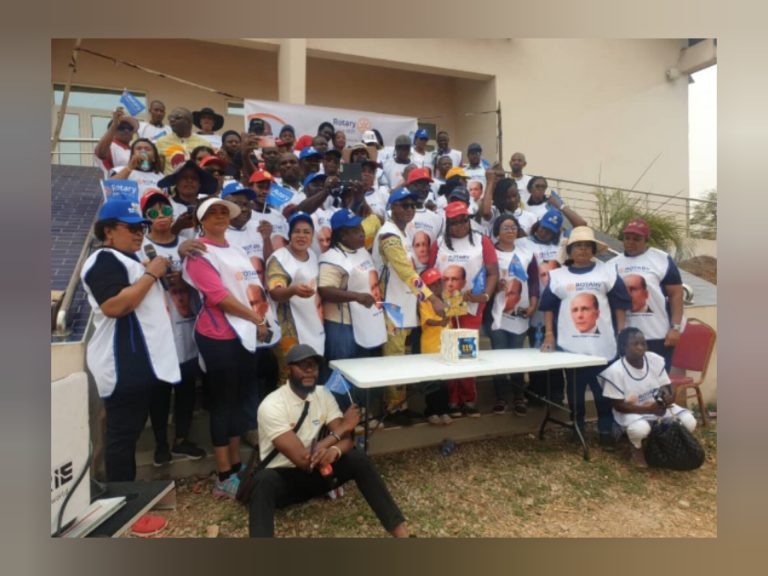As Rotary International commemorates its 119th anniversary, the global humanitarian organization may contemplate water sanitation for global environmental sustainability as its next global intervention following the eradication of Poliomyelitis.
Rotary initiated its Polio prevention and eradication efforts in 1985 across over 200 endemic countries but with only two remaining, it has set 2026 as the target for the final eradication of the poliovirus from the surface of the earth.
The District Governor (DG) of Rotary International District 9125, Sagab Sani Ahmed, while addressing the media after the anniversary celebration in Abuja on Saturday said the organization would persist in its global intervention even after polio is eradicated.
He said the structure established for polio eradication efforts would be maintained and not dismantled.
Emphasising Rotary’s core mission of global impact, Ahmed emphasized, “Rotary has done enormous work in the world that has created a lot of impact, for instance, the Polio Eradication Initiative, which is a global intervention, from being a District to a global project whereby, the countries of the world, the United Nations and all its organs, and many other partners have joined.
“That’s a great global impact the Rotary has made apart from the impacts in the communities around the world, where Rotary has been intervening in terms of peace and conflict resolution, maternal and child health, water and sanitation, in the environment and several other facets that Rotary has focused on.
“Going forward, Rotary is continually looking into areas that it is going to intervene because in the cause of the Polio Eradication Initiative, especially in a great structure has evolved and partnerships have been formed with many organisations and countries of the world.
“So, Rotary is looking forward to continue on other projects immediately the complete eradication of polio is achieved, which as of now has been slated for 2026.
“One of the areas that Rotary is looking into, which is also an area of spread of diseases, to streamline the spread of diseases is the water sanitation and hygiene, which as you all know, is one of the main areas where diseases are spread in the world and with particular attention, you know, to open defecation.
“This is something that is already on to but it is looking into expanding it to become a global intervention when Polio is completely eradicated.
“So, instead of collapsing the structure, the structure will now be moved into doing some other things.
“Discussions are going on, in respect of that and maybe other areas will also be looked into”.
The Assistant Governor (AG) and the Local Organizing Committee Chairperson of the Rotary Day celebration, Bukola Britto said the District’s road walk to celebrate the day centered on mental health awareness.
She said: “Serving humanity, the compassion to serve people, regardless of class, ethnic, religious affiliation has been the foundation of Rotary and that is why we have been able to put smiles on the faces of so many people globally and bring back to life, people that are already depressed, written off or even those that have lost all hope.
“It is a fact that we have been able to eradicate polio, but besides that we have also been going into different communities across the country to provide portable water, digging boreholes, sponsoring indigent children to school, providing health facilities, primary healthcare centers to underserved communities, empowerment of communities through vocational trainings all in an effort to give people life”.
The highlight of the day after the rain and walk was the cutting of the anniversary cake.
Rotary International was founded by a Chicago attorney, and Paul Harris on 23 February 1905 and has grown to more than 46,000 clubs worldwide, grouped into 529 districts of 34 zones.
Africa has 18 Districts, Nigeria, the only multi-district Rotary in Africa has 4 Districts with District 9125 covering 23 States and the Federal Capital Territory (FCT) with 147 Clubs and membership of about 5000 Rotarians.
